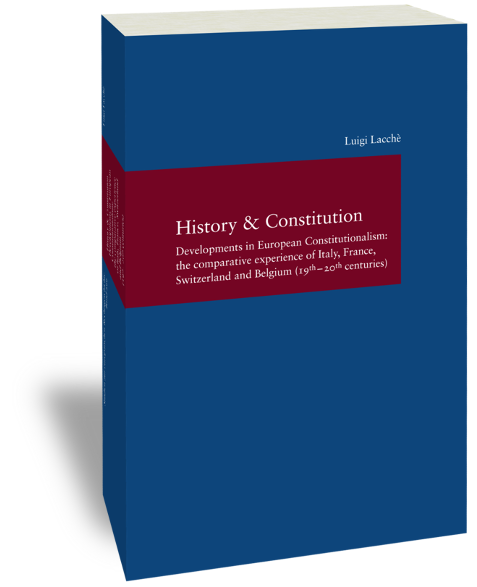(image source: klostermann)
Prof. Luigi Lacchè (Macerata) just published a volume of collected essays on History & Constitution Developments in European Constitutionalism: the comparative experience of Italy, France, Switzerland and Belgium, the 299th volume in the Studien zur europäischen Rechtsgeschichte-series of the Max Planck Institute for European Legal History in Frankfurt.
Abstract:
This volume gathers together 25 essays dedicated to the history of four important constitutional experiments (France, Belgium, Switzerland and Italy). While it considers these experiments and developments in the 19th and 20th centuries, comparative constitutional history, nevertheless, offers the possibility of obtaining a wider purview. It is in this sense that we can speak of the myth of the English constitution pervading the discourses and language of the French liberals, of Belgium being referred to as “Little England” in Italy, and the Modell Deutschland as increasingly becoming an object of fascination for Italian scholars of public law. In the 1830s Alexis de Tocqueville analysed the situation in Switzerland and compared the different kinds of federalism present in America and in Europe.Free excerpt can be read here.
A European comparative constitutional history, taking up a global perspective, can help us to better decipher two very important issues pertinent to our times: first, for assessing the identity and the constitutional substance of a living common core of the European constitutional traditions; and second, for considering constitutional history as a useful tool to address different levels of global constitutionalism and new trends of governance. History & Constitution offers not only insights into the past, but also provides some guidelines for the future.


No comments:
Post a Comment